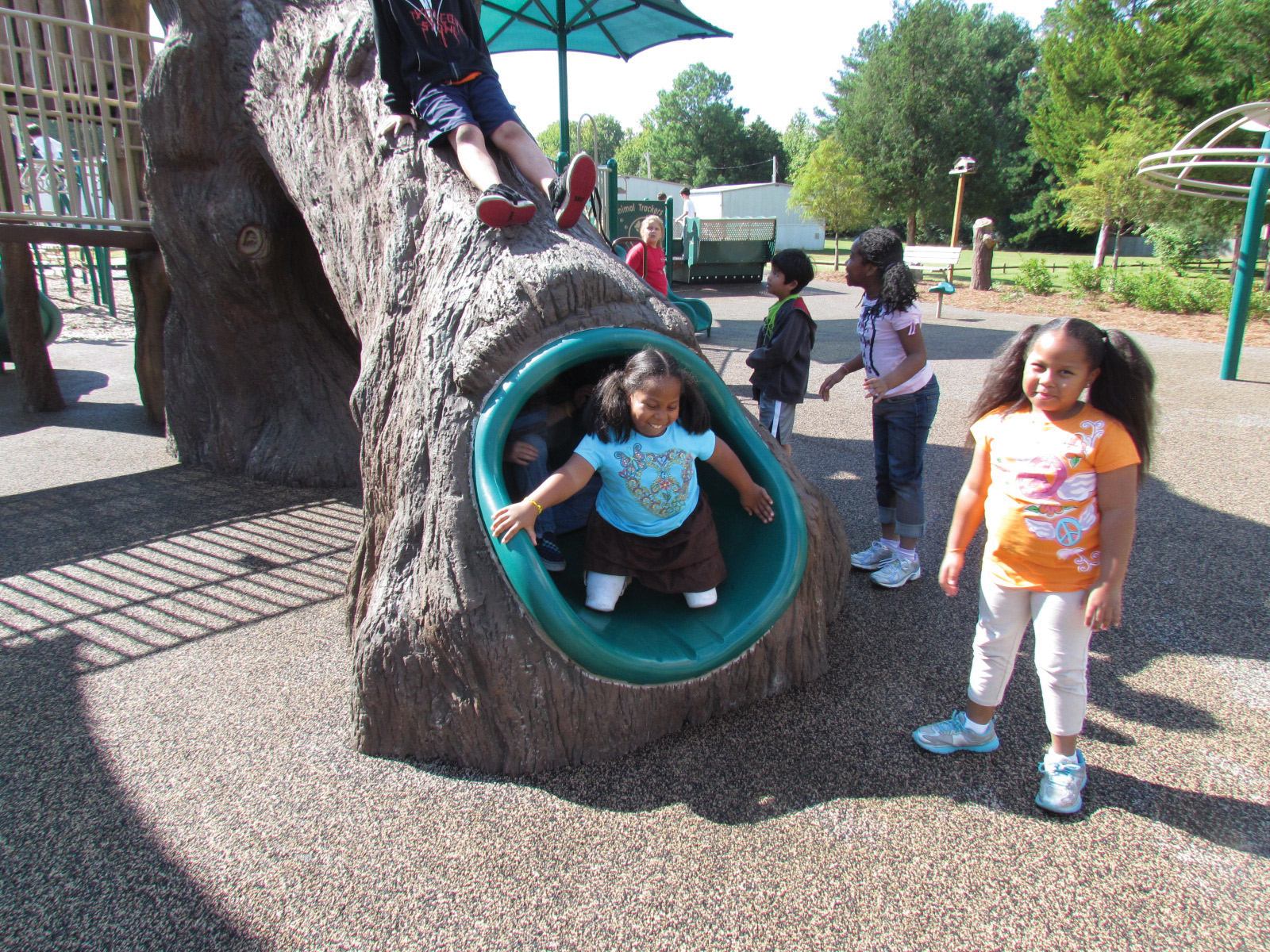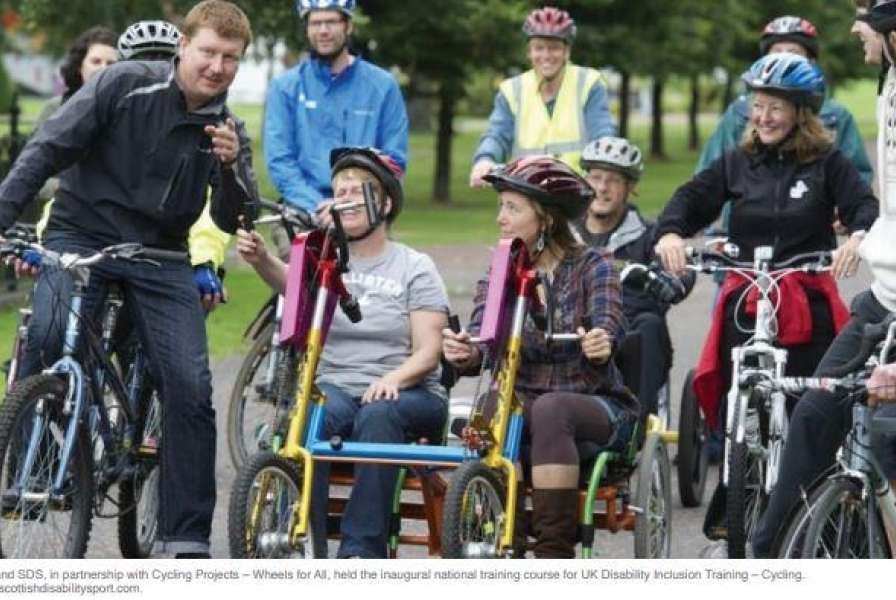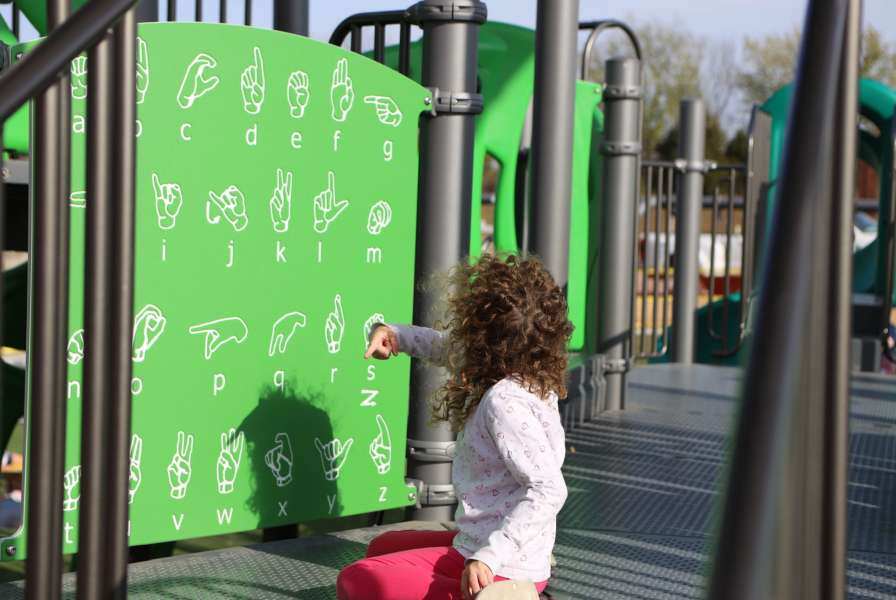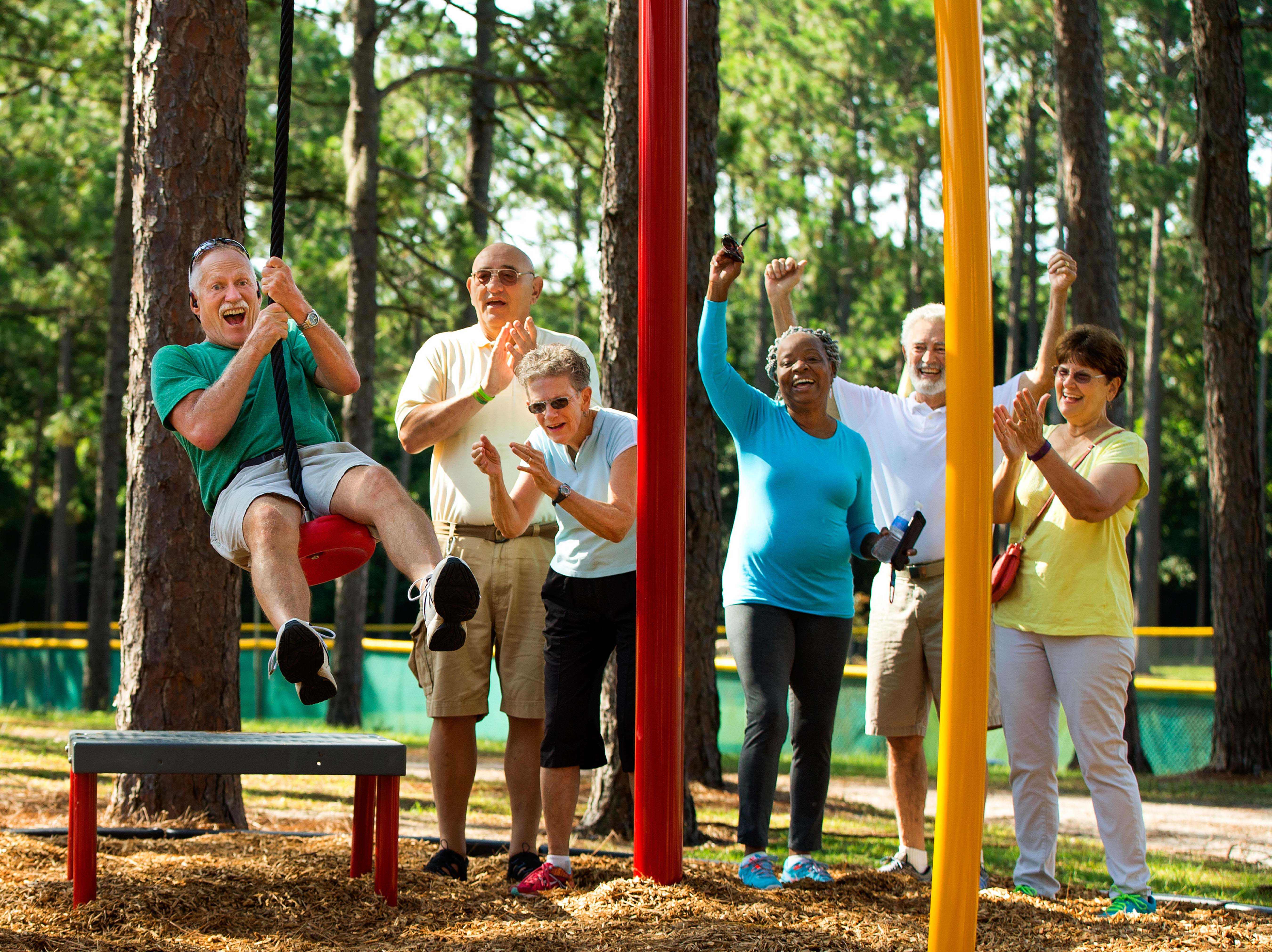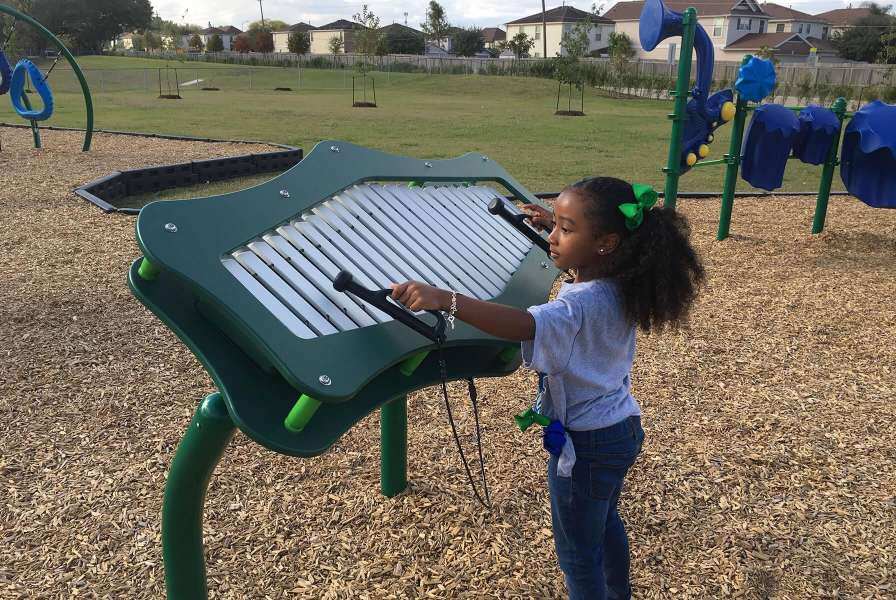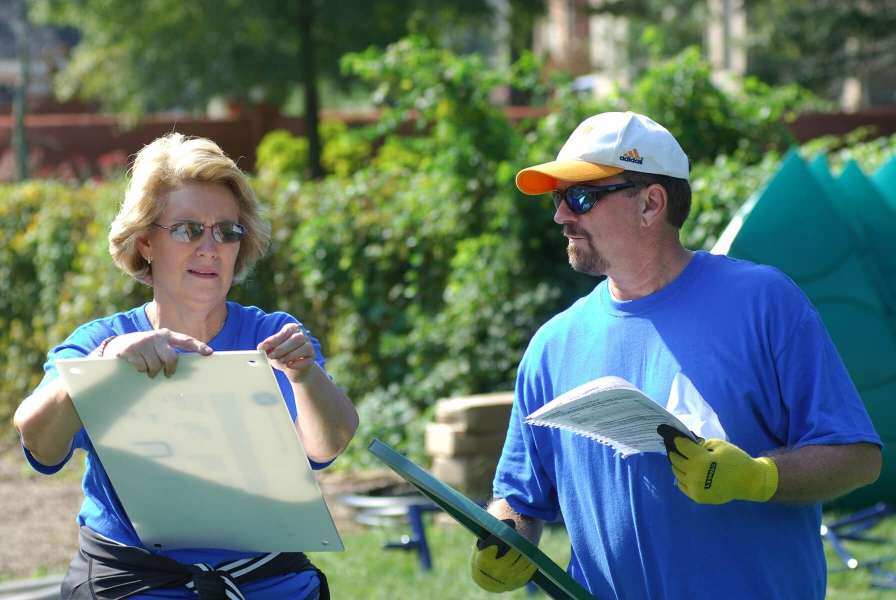Opportunities for active, independent play are important for children’s development, health, emotional well-being, and social opportunities. Unfortunately, through no fault of their own, opportunities for active, independent play are often unavailable to children with disabilities as a result of barriers in the play environment. These barriers may be both physical barriers to access and social barriers to participation.
Disability is often mistakenly understood as a child’s inability to experience the play environment because of limitations caused by their disability, when in reality, disability is the limitation of opportunities to participate in play on an equal level with others due to physical and social barriers in the environment. Disability is not a condition a child has, disability is an experience a child may have. When the play environment supports the needs and abilities of the whole child, the child experiences active, independent play.
When the play environment is not appropriate to the abilities and needs of the child, the child experiences disability. Children do not bring disability to the playground, they find it there when they are faced with obstacles to their participation from the characteristics of the playground. Every child’s right to play implies that children should not be subjected to the loss of opportunity for active, independent participation in play by characteristics over which they have no control.
Our Inclusion, Heritage and Purpose
Exclusion or lack of diversity in play and recreation spaces is doubtfully ever intentional. It is more likely that it comes about through inexperience and unfamiliarity with the knowledge or insight necessary to create a truly effective and meaningful environment. The risk is that, when inclusion is not achieved, society as a whole may not benefit from the addition and rich experiences of those who are most affected and who have a lot to offer. People with disabilities do not seek extra attention; they desire only the same opportunities to recreation as anyone, the ability to play alongside their peers, feel the emotional benefit of being part of a group, experience the pride of physical and social achievements, reach their full potential, and cement a strong connection to their community through the experiences encountered while at play.
"Children learn important life lessons and character development, like acceptance, patience, perseverance, kindness, and respect."
The term accessibility usually brings to mind issues of access to a space for people with physical disabilities. While this is certainly important, if access is the only consideration, the result may not allow equal participation, and may not consider the needs of the community as a whole. Access doesn't guarantee inclusion, and this can result in lost opportunities for people with disabilities and the larger society. Inclusive play environments encourage children of all abilities to play together, allowing them to develop an understanding and appreciation of each other’s strengths and challenges. This interaction can create a stronger sense of community. Children learn important life lessons and character development, like acceptance, patience, perseverance, kindness, and respect. Early interactions in play help facilitate personal experiences and build lifelong positive opinions.

While inclusion includes access, a much wider range of considerations must be adopted to create a meaningful experience where all have equitable participation. When executed correctly, inclusion can embrace cultural equality, break down psychological and emotional barriers, and create an atmosphere of respect, awareness, independence, and learning that benefits the whole community. In this wider sense, inclusion is about providing all people, regardless of ability or age, with equal opportunities to participate fully in a variety of opportunities in the environment in a mutually beneficial way. We can help.
Continue reading to get started advocating for inclusion in your community.
Download the free PDF on disability awareness to share with your team.
Learn more about inclusive play design.
